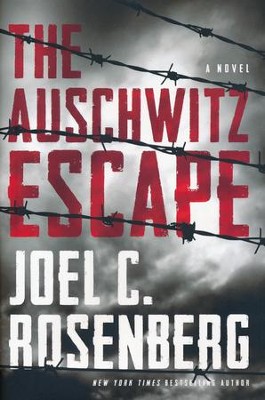
The Auschwitz Escape is a very, very good book but it is not light reading though. It is a heavy subject. At times I just had to put the book down because it is just intense and sad. When Jacob Weisz's parents are killed by the Nazis, he flees and joins the resistance movement. While attempting to stop a train load of Jews heading for a concentration camp, Jacob is apprehended. He winds up at Auschwitz. The book details life at Auschwitz -- the brutal conditions, lack of food, starvation and all the ways people can die at that camp. The underground resistance is alive within the camp, and Jacob becomes a member. Their goal is to get several teams to escape and so that news of what is actually happening at Auschwitz will be told to the allies. They hope the Allies will then either free the camp or bomb it completely so its ovens can no longer be used for mass exterminations. While those in the camp would all die it would ultimately save lives to not have the camp available. The book is fiction but the author did extensive research. Much of what he put into the book is based on things he found to have really happened. The escapes he wrote about were based on real life escapes from Auschwitz. The town of Le Chambon is a real town in France that was recognized by the State of Israel for its exceptional efforts as they "offered shelter in private homes, in hotels, on farms and in schools. They forged identification and ration cards for the refugees and in some cases guided them across the border to neutral Switzerland." Le Chambon is the town that the author has Jean-Luc Leclerc, the person Jacob escapes the camp with, as an assistant pastor. He also winds up in Auschwitz for helping the Jewish people to hide from the Nazis. I really like this quote from the book, "Evil, unchecked, is prelude to genocide." I think that is something we need to never forget.
Here are a few other quotes I think worth remembering.
p 179 - "I guess Heine was right. Who? Heinrich Heine. The poet? Yes. ... So what did Heine say? Where books are burned, they will, in the end, burn people, too..... He really wrote that? He did. When? I don't know - 1821, '22, something like that. Maybe he was a prophet..... Maybe he was."
p 456 "..... in the end, evil did not triumph. It tried, but it did not succeed. Evil was defeated because good people rose to the challenge and refused to surrender."
No comments:
Post a Comment